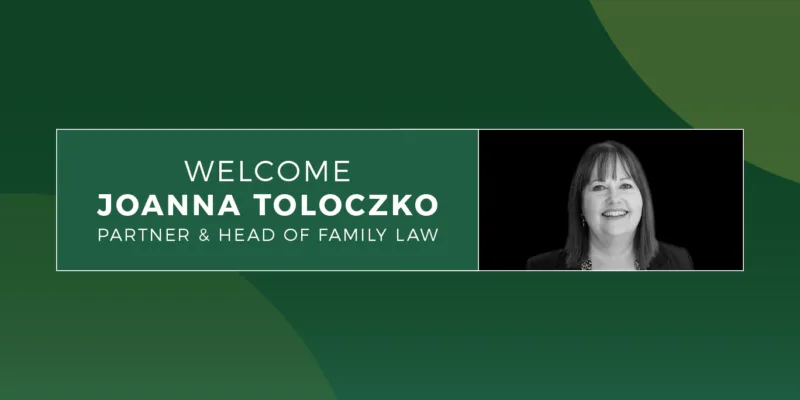Our Family team can help you with all aspects of international law. Our solicitors have experience advising on legal matters in multiple international jurisdictions.
Contact UsManchester 0161 832 2500 | London City 0204 505 8080 | London Finchley 020 8349 0321
Secure PaymentRequest a call back
International Family Law
International family law involves a consideration of family law when one or more countries is involved in addition to England and Wales. Disputes can arise over which country the divorce should take place, where children will live or visit, and how financial settlements on divorce can be enforced.
Nuptial and cohabitation agreements may involve arrangements to be made regarding assets in multiple jurisdictions.International family law has developed as a result of families from other countries settling in the UK, and working and settling elsewhere. Disputes over where to issue divorce proceedings are more and more common requiring the expertise of international divorce lawyers. Such disputes have become more complex following Brexit, the UK’s departure from the EU, as the jurisdiction determining financial settlements, in particular maintenance awards have to be negotiated or adjudicated.
Relocation of children disputes can arise where a parent with care of the childrenintends to move to another country against the other parent’swishes. Early specialist legal advice is always recommended.
Child arrangements may also need to take account of holidays abroad, longer periods abroad in addition to relocation. The firm can advise on arrangements that need to put in place before children are taken abroad.
The firm has developed a niche in Anglo-Swedish matters over many years and regularly accepts instructions from Swedish nationals.
Nuptial agreements and cohabitation agreements are negotiated for couples who wish to confirm their intentions as to property ownership and may wish to ringfence their assets in the event of relationship breakdown. If these assets are held in other countries, these agreements are negotiated also with the benefit of foreign legal advice.
Mediation and arbitration are good alternative out of court solutions to litigation disputes, which ensure that the process can be kept confidential, more amicable as well as more streamlined.
Frequently Asked Questions
Can I get divorce in England and Wales if I live abroad?
If you live abroad, you can obtain a divorce in England and Wales provided you can prove that your spouse is domiciled and habitually resident in England and Wales. If neither of you are resident in England and Wales, but you wish to divorce in England and Wales, you may need to move to England and Wales for a period of between 6 and 12 months to establish habitual residence and domicile. Early specialist legal advice is recommended if you are planning to live in England and Wales to establish habitual residence or domicile. Before divorcing in England and Wales, you should consider which is the country which has the most connection for you and your spouse, including where the assets are situated and in which country any children of the marriage are living.
Can I divorce abroad?
If you were married in England and Wales, or are living in England and Wales, you may be able to divorce abroad if you or your spouse can establish jurisdiction. If you or your spouse are eligible to divorce in the EU, in situations involving other EU countries, the first country in which divorce proceedings are issued will be where the divorce takes place (lis pendens). In other countries, it is more likely that the country with the closest connection (forum conveniens) will be the country where the divorce takes place. In all such instances, a combination of English and foreign legal advice is strongly recommended.
How to get a divorce when you are married in another country?
If you are married in another country, you will be eligible to divorce in England and Wales provided that you are able to establish jurisdiction (habitual residence and domicile). Before commencing divorce proceedings in England and Wales, you will need a certified copy translation of your marriage certificate (if it is not in English). You should check that the marriage celebrated in the other country was a qualifying or binding religious wedding ceremony in that country or if it was a religious as opposed to a secular marriage.
Do I need to register my marriage in England and Wales if I get married abroad?
As long as the marriage abroad was validly celebrated within the laws of that country, there is no need to register your marriage in England and Wales. If your marriage was not validly celebrated or you entered into a non-qualifying or non-binding religious ceremony abroad, you will then need to register your marriage in England and Wales to ensure that you are treated legally as being married.
You are recommended to take legal advice from a specialist family lawyer in the country in which you were married to confirm your marital status if you are in any doubt as to the legal status of your marriage celebrated abroad or the status of any religious wedding ceremony you may have been through. If you are not treated as legally married abroad, you may not be entitled to the same financial remedies in England and Wales that are available to couples who have been validly or legally married.
Our Family Partner
We take the time to get to know our clients and their businesses, and we work collaboratively with them to achieve their goals.
Meet Our TeamsFor proactive, bespoke, commercial solutions, contact us to discuss your needs.
Contact UsRequest a call back

Needing a lawyer in a different country was a bit overwhelming living in the US. Gemma Barnhurst was lovely to work with. She put me at ease and provided good counsel. I am glad I was referred to BBS Law by a friend and would recommend them to anyone else needing similar services.
BBS Law Client

Family News
Family Case Studies
Urgent Application for a Prohibited Steps Order
BBS Law represented a father who has sole care of the parties’ two-year-old son. The mother had returned to Taiwan, her home country and did not have consistent contact with the child. Given the father was in possession of the…







